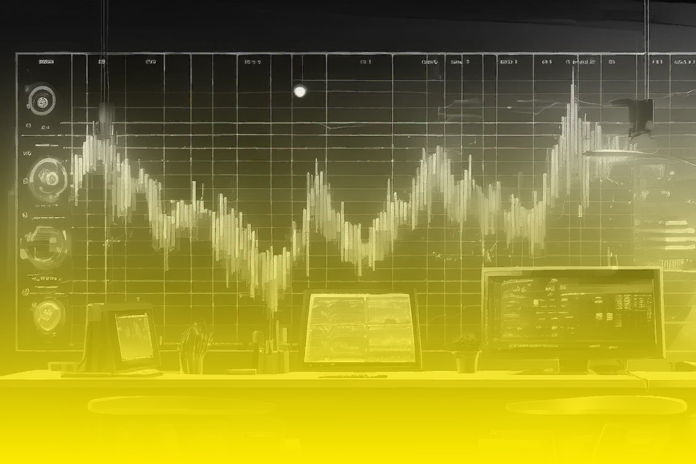Using News and Events: Trading Based on Economic News Releases
Trading based on economic news releases is a crucial strategy for forex traders and investors. News events can lead to significant market movements, and understanding how to interpret and act on these releases can enhance trading strategies and decision-making. Here’s a detailed guide on how to use news and events in trading:
1. Importance of Economic News Releases
1.1. Market Impact
- Volatility: News releases often lead to increased market volatility as traders react to new information. This volatility can present opportunities for quick profits but also carries risks.
- Market Sentiment: News can shift market sentiment, leading to rapid changes in asset prices. Positive news may strengthen a currency or stock, while negative news can have the opposite effect.
1.2. Types of News Releases
- Economic Indicators: Includes GDP, inflation rates (CPI), unemployment rates, and interest rate decisions.
- Geopolitical Events: Includes elections, trade agreements, and political instability.
- Central Bank Announcements: Includes interest rate changes, monetary policy statements, and economic forecasts.
- Corporate Earnings Reports: For stock traders, quarterly earnings reports and company guidance are critical.
2. Key Economic News Releases and Their Impact
2.1. Major Economic Indicators
Gross Domestic Product (GDP):
- Impact: Reflects the overall economic health. Strong GDP growth can boost currency values and stock prices.
- Trading Strategy: Look for surprises in GDP reports relative to expectations. Significant deviations can lead to sharp market moves.
Consumer Price Index (CPI):
- Impact: Measures inflation. High inflation can lead to interest rate hikes, impacting currencies and bonds.
- Trading Strategy: Trade based on the deviation from expected inflation rates. Higher-than-expected CPI can strengthen currencies.
Unemployment Rate:
- Impact: Indicates labor market health. Lower unemployment typically supports economic growth and can positively affect stock markets.
- Trading Strategy: Monitor for unexpected changes in unemployment figures. Lower unemployment rates can lead to stronger currencies.
2.2. Central Bank Announcements
Interest Rate Decisions:
- Impact: Directly affects currency value and investment flows. Rate hikes often strengthen a currency, while cuts can weaken it.
- Trading Strategy: Trade based on the actual rate decision and any forward guidance provided by central banks.
Monetary Policy Statements:
- Impact: Provides insights into future economic conditions and central bank actions.
- Trading Strategy: Pay attention to the language used in statements. Hawkish or dovish tones can influence market expectations.
2.3. Geopolitical Events
Political Elections:
- Impact: Can lead to uncertainty and market volatility. Different candidates or parties can have varying economic policies affecting markets.
Trading Strategy: Prepare for increased volatility around election times. Trade based on expected outcomes and policy implications.
Trade Agreements and Tariffs:
- Impact: Can affect global trade flows and economic conditions. Trade agreements can strengthen currencies, while tariffs can have the opposite effect.
- Trading Strategy: Analyze the impact of trade news on specific currencies or sectors. Adjust positions based on new trade policies.
3. Trading Strategies Based on News Releases
3.1. News Trading
Pre-News Strategy:
- Analysis: Analyze the consensus forecasts and historical impact of similar news events.
- Positioning: Enter trades before the news release based on expected outcomes.
Post-News Strategy:
- Analysis: Assess the actual news versus expectations. Trade based on the market reaction and volatility.
- Timing: Wait for initial market volatility to settle before taking positions to avoid excessive slippage.
3.2. Event-Driven Trading
High-Impact News Events:
- Focus: Prioritize high-impact news such as interest rate decisions and major economic releases.
- Execution: Use limit orders to manage entry points and stop-loss orders to control risk.
Economic Calendar:
- Tracking: Use an economic calendar to track upcoming news releases and their expected impact on the market.
- Planning: Plan trades around scheduled news events and adjust positions as needed based on the news outcome.
3.3. Volatility Strategies
Breakout Trading:
- Concept: Trade based on price movements following news releases. News can lead to strong breakouts.
- Execution: Use breakout strategies to capitalize on strong price moves post-news.
Range Trading:
- Concept: After the initial volatility, price may stabilize within a range. Identify new support and resistance levels.
- Execution: Trade range-bound strategies after the initial market reaction to news.
4. Practical Tips for News-Based Trading
4.1. Stay Informed
- Economic Calendars: Use calendars to track upcoming news events and their expected impact on different markets.
- News Sources: Follow reliable news sources for real-time updates and market analysis.
4.2. Manage Risk
- Stop-Loss Orders: Always use stop-loss orders to manage potential losses during volatile news periods.
- Position Sizing: Adjust position sizes based on the expected volatility and risk of the news event.
4.3. Analyze Market Reactions
- Initial Reaction: Monitor how the market initially reacts to news. This can provide clues for further trading decisions.
- Long-Term Impact: Assess whether the initial market reaction continues or reverses, and adjust trades accordingly.
Conclusion
Trading based on economic news releases requires a deep understanding of how various types of news impact the markets. By utilizing news and event-based strategies, traders can take advantage of market volatility and align their trades with economic trends. Staying informed, managing risk effectively, and analyzing market reactions are key to successful news-based trading.



